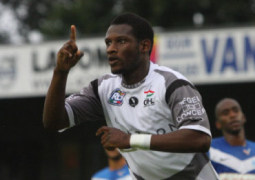African Women Millennium Initiative AWOMI based in Dakar recently invited Haddijatou Mbenga, a student Economist, University of the Gambia and my humble self, a Gender activist and journalist, Amie Sillah to a four day accountability tracking on governments' commitment at Sendou village, senegal. 32 participants attended from 9 countries in
This workshop was a follow up from a month training of participants of Young Women knowledge and Leadership Institute (YOWLI) in
According to Madam Yassin Fall, President of AWOMI "YOWLI is a crossroads enabling us to celebrate together with gender sensitive young women and men, the vibrancy and leadership of young women from
The
The synopsis is this: Governments sign treaties and conventions. Sometimes they ratify, domesticate and even implement but what happens on the ground? Are there programmes to implement the policy? Are there resources allocated to implement the programmes? What is the trickle down on recipients? What questionarries have been developed? Comments from participants are welcomed. It should be agreed by all for usage in the research. Deadline is 10 January. AWOMI believes in evidence driven analysis. Myself and Haddijatou hope to meet the two YOWLI participants and map out a plan for the
The
What you need to know about AWOMI
It is based in
Objectives:
- To promote the emergence of a strong African social movement on economic and social justice led by women community leaders and youth living in impoverished communities.
- To make policy analysis and formulation responsive to gender equality and states accountable with regards to their human rights commitments at all levels;
- To challenge and influence different categories of stakeholders involved in policy-making and poverty eradication processes at the local, national and global levels to re-orient their approach towards pro-people and equality driven interventions;
- To promote economic opportunities for women and youth;
- To develop innovative advocacy mechanisms ensuring that resources mobilized for poverty eradication including for the MDGs benefit impoverished women and youth.
AWOMI's Programmes include?
- Evidevce base research
-The young women's knowledge and leadership institute
- The Women's Empowerment Fund (WDFU)
-Social Mobilization and Movement-Building
- AWOMI is spearheading the new Casablance initiative
Training and working with economists, journalists and YOWLEES to use the new Accountability tracking tool (ACT).


